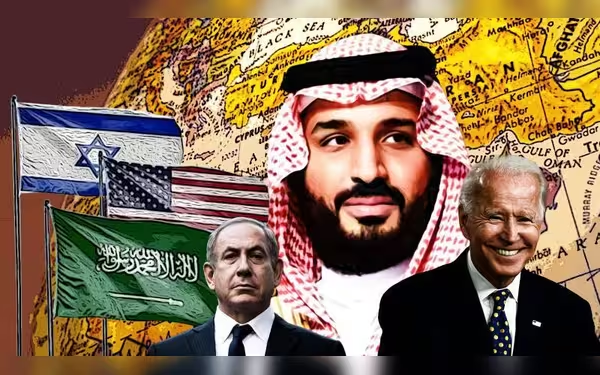Saturday, November 16, 2024 05:46 PM
Israel Gaza Conflict: A Year of Struggle and Uncertainty
- Israel's military efforts against Hamas face significant challenges.
- Hamas utilizes tunnels for survival amid ongoing conflict.
- US seeks alliances to stabilize the Middle East region.
 Image Credits: thefridaytimes
Image Credits: thefridaytimesThe Israel-Gaza conflict nears a year, with military efforts and political challenges complicating the quest for peace and stability in the region.
The ongoing conflict in Gaza has reached a critical juncture as it nears its one-year mark. The situation remains dire, with Israel's efforts to dismantle Hamas proving to be more challenging than anticipated. Despite Israel's military strength, bolstered by support from the United States and Europe, the goal of total victory has eluded them. The quest for a ceasefire, involving negotiations led by the USA, Egypt, and Qatar, has stalled, leaving the region in a state of uncertainty.
From Israel's viewpoint, significant strides have been made in disrupting Hamas's operations. Key supply routes, such as the Philadelphia Corridor, have been targeted, cutting off essential resources for the group. Israel claims to have eliminated a substantial number of Hamas combatants and leadership figures, asserting that it can now operate freely within Gaza. However, the Israeli government fears that a premature evacuation could allow Hamas to regain strength quickly.
On the other hand, Hamas has adopted a strategy of survival, urging its fighters to utilize an extensive network of tunnels beneath Gaza. While Israel has attempted to damage these tunnels, they remain largely intact, providing Hamas with a means to evade capture and continue its operations. The group believes that the ongoing conflict generates international sympathy for the Palestinian cause, further complicating the situation.
Meanwhile, the United States is navigating a complex geopolitical landscape, forming alliances to counter threats from Russia, China, and Iran. A proposed defense alliance with Saudi Arabia hinges on the normalization of relations between Saudi Arabia and Israel, which would require a ceasefire in Gaza and a commitment to a two-state solution. Such developments could pave the way for broader regional cooperation and stability.
However, Israeli Prime Minister Benjamin Netanyahu faces significant political challenges. His coalition government, reliant on far-right partners, opposes any concessions that could lead to a two-state solution. This internal strife complicates the prospects for peace, as Netanyahu seeks to maintain his position amid legal troubles.
The situation in Gaza is a multifaceted crisis that intertwines military strategy, political maneuvering, and humanitarian concerns. As the conflict continues, the need for a sustainable resolution becomes increasingly urgent. The path forward will require not only military considerations but also a commitment to dialogue and understanding among all parties involved. Only through cooperation and a genuine desire for peace can the cycle of violence be broken, leading to a brighter future for the people of the region.













